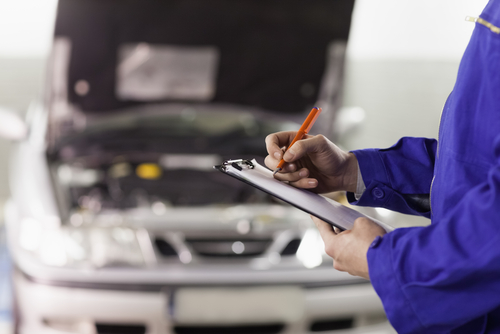Getting coverage for repairs from your auto insurance depends on what necessitates the repairs. Your auto insurance will not provide coverage if your car needs maintenance repairs or regular wear and tear repairs. A standard auto insurance plan covers you if you get involved in an accident or if your car gets damaged by covered events such as theft, hailstorm, or vandalism.
Suppose you need to carry out periodic repairs or maintenance such as fixing your brakes, changing your oil, or tuning up the engine. In that case, you will need to cover it out of pocket unless the repair is needed directly due to a covered event in your car insurance policy. However, there is another type of auto insurance that helps to cover standard repairs. This insurance is known as Mechanical Breakdown Insurance, or car repair insurance.
Mechanical Breakdown Insurance
You must purchase car insurance, although you may only need to buy a minimum amount in some cases. Some insurance companies sell mechanical breakdown insurance to help cover the costs of some regular repairs. This type of insurance is not mandatory in any state, and it’s not part of a typical car insurance policy. Most insurers who sell this coverage only cover new cars or cars below a certain mileage but cars that have a greater value, such as a Tesla, may not be covered by this policy. Insurance providers who sell this type of plan will require you to take your vehicle to an approved shop for repairs.
Like traditional insurance policies, you will also need to pay the deductible before the insurer begins to cover the costs. There could be exclusions for some repairs, depending on the insurer.
What Repairs are Covered by Car Insurance?
Under regular car insurance, you cannot get coverage for regular repairs. Car insurance policies only cover repairs you need due to covered events such as vandalism, accidents, weather, or other events. You will receive coverage as long as you have comprehensive and collision coverage.
Under comprehensive coverage, you will be reimbursed for damages that do not relate to a collision, such as falling objects, natural disasters, theft, and vandalism. Comprehensive coverage typically covers events that occur when your vehicle is not being driven. If damage occurs to your car and the event is covered, the insurer will cover the repair costs.
On the other hand, collision coverage covers damages that occur as a result of a crash. For example, if your car gets damaged due to an accident, the insurance will cover the damages regardless of whether you were at fault or not.
Need Car Insurance? We Have You Covered
At Secure Insurance Group, we offer a wide variety of insurance services. To get the right plan that fits your needs, contact us today.


